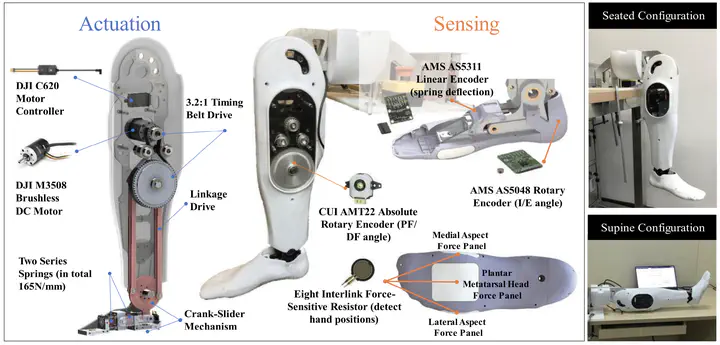Design and Clinical Validation of a Robotic Ankle-Foot Simulator With Series Elastic Actuator for Ankle Clonus Assessment Training
 Image credit: Unsplash
Image credit: Unsplash
Abstract
To fulfill the need for reliable and consistent medical training of the neurological examination technique to assess ankle clonus, a series elastic actuator (SEA) based haptic training simulator was proposed and developed. The simulator’s mechanism (a hybrid of belt and linkage drive) and controller (impedance control) were designed to render a realistic and safe training environment. Benchtop tests demonstrated that the prototype simulator was able to accurately estimate the interaction torque from the trainee (average RMSE of 0.2 Nm) and closely track a chirp torque command up to 10 Hz (average RMSE of <0.22 Nm). The high-level impedance controller could switch between different clinically encountered states (i.e., no clonus, unsustained clonus, and sustained clonus) based on trainee’s assessment technique. The simulator was evaluated by a group of 17 experienced physicians and physical therapists. Subjects were instructed to induce sustained clonus using their normal technique. The simulator was assessed in two common clinical positions (seated and supine). Subjects scored simulation realism on a variety of control features. To expedite controller design iteration, feedback from Day 1 was used to modify simulation parameters prior to testing on Day 2 with a new subject group. On average, all subjects could successfully trigger a sustained clonus response within 4-5 attempts in the first position and 2-3 in the second. Feedback on the fidelity of simulation realism improved between Day 1 and Day 2. Results suggest that this SEA-based simulator could be a viable training tool for healthcare trainees learning to assess ankle clonus.